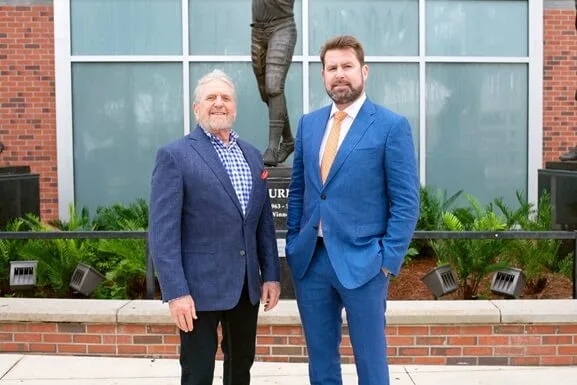Florida Head-On Collision Attorneys
Serious accidents result in serious injuries
Head-on collisions are one of the most deadly forms of car accidents. The massive amount of forces colliding in a head-on crash put vehicle occupants at much greater risk of serious injury or death than exists in most other accident types. While only about 2% of all accidents on US roads are head-on crashes, they account for over 10% of all roadway fatalities each year. Even when head-on accidents don’t result in fatalities, they can leave vehicle occupants with major spinal injuries, traumatic brain injuries, burns, or broken bones.
A Florida law firm you can trust to get results after a head-on crash
The stakes are high when you’re seeking compensation after a serious crash. If you or someone you love has been the victim of a head-on collision, contact the dedicated and tenacious Florida personal injury attorneys at Meldon Law. Our skilled Florida head-on collision attorneys won’t rest until we obtain results for you and your loved ones. Contact us today to receive a no-cost evaluation of your potential head-on collision claim.
How do head-on collisions happen?
Head-on collisions are frequently the result of some other illegal or dangerous driving behavior, such as texting while driving, drunk driving, or drowsy driving. Drivers who are not paying full attention to the road become much more likely to veer or swerve into oncoming traffic. Additionally, if a driver doesn’t realize that a crash is imminent, the harmful effects of that accident can become even greater. When a driver doesn’t realize that a crash is about to occur, whether due to impairment or inability to see the road ahead, they are unable to take steps to mitigate the damage from a crash such as braking or swerving.
Evidence of a driver’s illegal or unsafe behavior at the time of an accident can serve as additional support when pursuing a claim for damages. Additionally, if the driver who caused your head-on collision was drunk at the time of the crash, you might be entitled to an award of punitive damages against the driver. The Florida personal injury attorneys at Meldon Law can help you assess what damages you’re entitled to receive after a head-on crash.
Unsafe passing practices are a major cause of head-on crashes
While a head-on collision can happen on any road, they are most common on rural two-lane roads. In fact, the National Highway Traffic Safety Administration estimates that 75% of all head-on collisions occur on undivided two-lane highways. Without the cement divider that exists to protect lanes of opposing traffic, cars are more likely to veer into opposing lanes either accidentally or intentionally.
Safety experts believe that many of the head-on crashes that occur on two-lane roads are due to unsafe passing practices. When drivers attempting to pass enter the opposing lane of traffic without first ensuring that they are in a passing zone and that oncoming traffic is a sufficiently safe distance away, they put both the lives of their passengers and those in the opposing car at risk of fatal injuries.

What are the steps to take to ensure safe passing on two-lane roads?
- Make sure you’re in a passing zone: Passing on two-lane highways is only permissible where there is a dashed line closest to your lane of travel, and never where there are two solid yellow lines. Passing is also prohibited if you have recently passed a pennant-shaped “No Passing Zone” sign.
- Check the distance between yourself and oncoming traffic: While an oncoming car might seem far in the distance, whether or not it is safe to pass will depend on your speed and the speed of the oncoming vehicle. Safety experts estimate that in order to pass safely when traveling at or over 70 miles per hour, you need at least 1200 feet between your vehicle and oncoming vehicles. If a bend in the road or the top of a hill makes it impossible for you to see oncoming traffic, wait to pass until you are certain you can see any oncoming vehicles.
- Make sure that no car is passing you: Use your turn signal and make sure that no other vehicle has begun the process of passing you or is in your blind spot when you exit your lane.
- Reenter your lane of traffic safely: Do not reenter your lane of traffic until the car you’re passing is visible in your rear-view mirror. That said, be sure you can do so before you are under 100 feet from any oncoming cars.
The Help You Need From a Florida Head-on Collisions Attorney
Head-on collisions can devastate Florida families, leaving them with staggering medical bills, lost earnings from time off work, and painful lingering injuries. Don’t battle the insurance companies without help. Choose effective and compassionate personal injury attorneys to battle for you. Contact the Florida head-on collision attorneys at Meldon Law for a free consultation.




